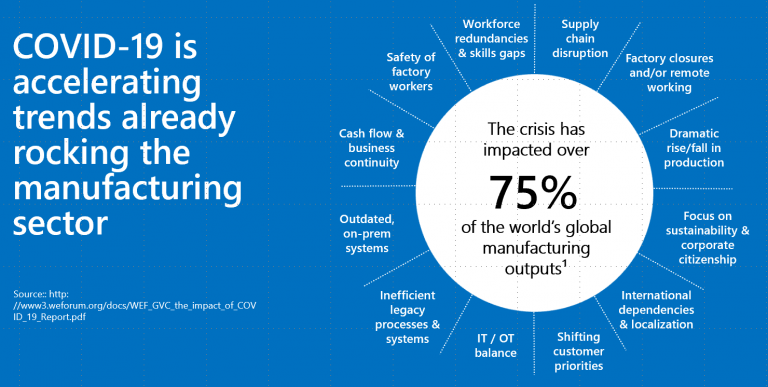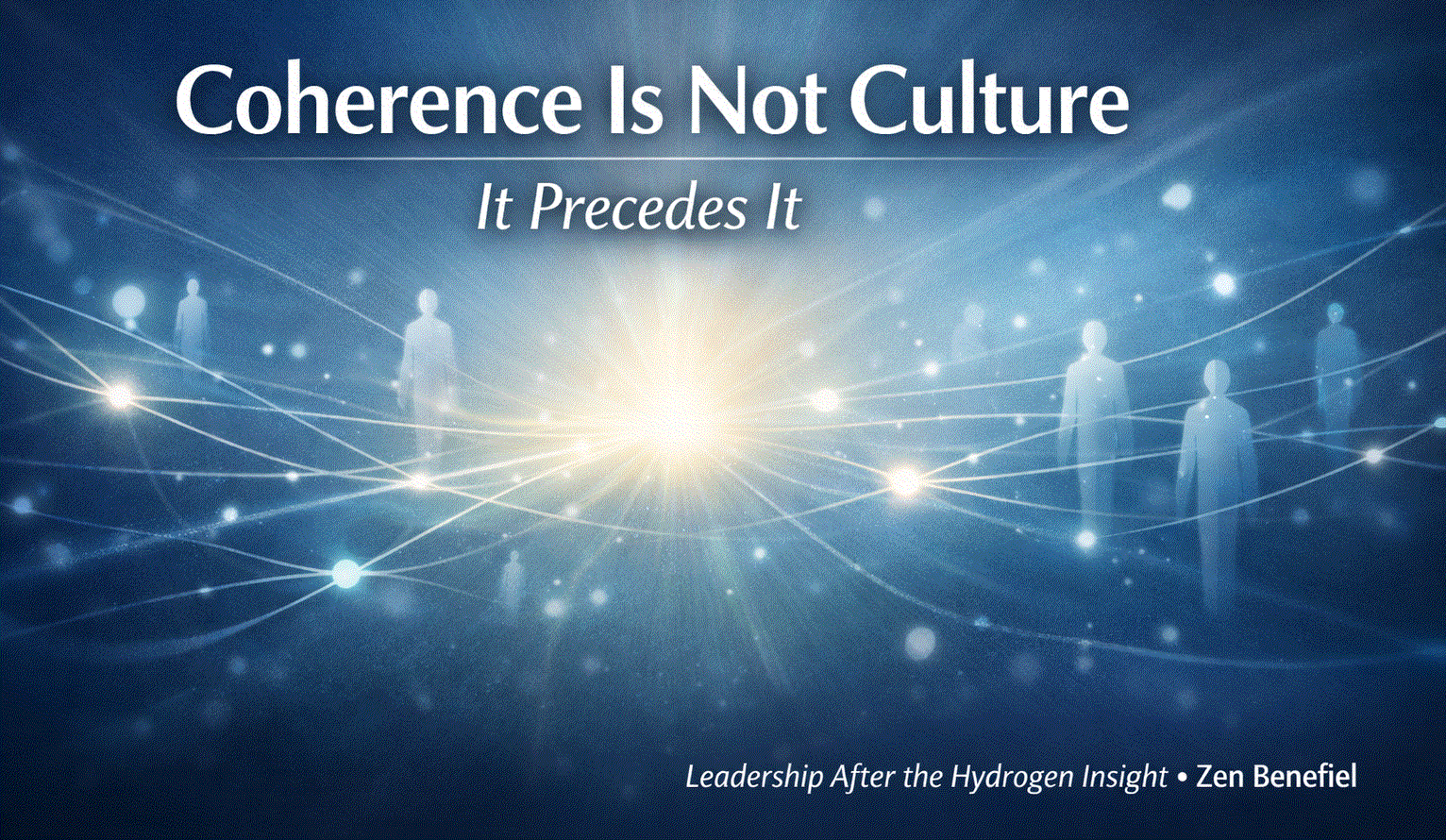Apr14

Manufacturers around the globe are becoming more agile and adaptable. Post-COVID 2020 has been a year that we will not soon forget.
This interference has led to the high demand for innovation, fast delivery, and better user experience. Filled with unimaginable change caused by the pandemic, the manufacturing industry witnessed a perfect storm, a significant disruption in terms of business continuity, operational visibility, remote work, employee safety, and the list goes on. However, businesses have responded, adapted, and are recovering.
The manufacturing industries show higher adoption rates of the cloud than other industries. As Information Technology (IT) and Operations Technology (OT) automates highly manual and specific industrial operations, firms shifted to the cloud to strategically store and operate the data. Frost and Sullivan estimate that connected industrial devices are growing at 15.5% CAGR through 2026, as manufacturers invest in Industrial Internet of Things (IIoT) architectures that extend the cloud to the edge.
Manufacturing industries are moving half of their workloads to the cloud (public or hosted private). That number is expected to grow faster than other industries over the next five years. Firms that leveraged public cloud as catalysts for Innovation and foundation to boost productivity; enable collaboration among remote and frontline employees achieved more success than those who followed traditional methods.
But, still, there is much to be done. So, I would say “Microsoft Cloud for Manufacturing” will be a game-changer for Manufacturing companies.
Before we investigate the unique value proposition of Microsoft Cloud for Manufacturing, let’s look into the top 5 trends of 2021 in Manufacturing in 2021.
Manufacturers need to protect the core operations of their business while building resilient and scalable operations. In addition, they should create flexibility to scale and drive new business models for resilient and diverse supply chains and supplier ecosystems.
Manufacturers will focus more on developing new products, sustainable, environment-friendly practices, new partnerships, and good corporate citizenship.
Coming manufacturing industries will turn to digital capabilities to build a resilient business and scalable operations. This will include operational resilience (supply chain, security, product development, risk management, etc.) and critical financial management (cost management, cash flow, spend analytics, supplier performance analysis, etc.)
All manufacturing industries will focus more on increasing agility in operations. Manufacturers can respond to the disruptions caused by the pandemic by investing in digital initiatives to optimize the workplaces and factories. Employees will be empowered with the latest technologies such as AI, mixed reality, and automation technologies, which will transform how they interact with customers and innovate the company’s strategic direction
To fulfill the changing needs of customers and partners, manufacturers should create the capability to promote new channels. As a result, there will be a high requirement of an enhanced focus on customer and partner communications, security, sustainability, safety with good corporate citizenship, and customer management.
The 2020 Frost and Sullivan Global Cloud User Survey reveal the progress and challenges for manufacturers. Among the interesting findings of this year’s survey:
As the digital transformation is picking up pace in the manufacturing industry, the requirement for flexible infrastructure to support applications and data is increasing. Manufacturers require modified data management tools and smooth cloud connections to pool, process, and protect the critical data assets that drive their intelligent operations. That is why manufacturing firms are shifting to the cloud to store and process the data collected.
Manufacturers use an average of two public cloud providers today, compared with just over three across all industries. This indicates that manufacturers prefer to develop deep relationships with the providers that best serve their needs. On average, manufacturing firms have placed just under half of their workloads in the cloud (public or hosted private). That number is expected to grow faster than other industries over the next five years.
According to the survey, 45% of manufacturing firms use Microsoft Azure to run cloud applications and data. 94% say they are satisfied or delighted with their Azure services.
I am sure you are wondering if Microsoft is Azure is already a leading Cloud platform for Manufacturing customers, then what’s the buzz about “Microsoft Cloud for Manufacturing,” and what makes it unique?
Microsoft Industry Clouds provide an on-ramp to the broader portfolio of Microsoft cloud services because they are designed to enable consumers to start with the areas where the demand for technology or business transformation is very high. Industry Cloud Offerings about integrated user experience by providing full support to the buyer journey for the industry.
Microsoft Cloud for Manufacturing (MCFM) is designed to deliver capabilities that support the core processes and requirements of the industry. These end-to-end manufacturing solutions include new capabilities that seamlessly connect people, assets, workflow, and business processes, empowering organizations to be more resilient. In addition, MCFM commits to industry-specific standards and communities, such as the Open Manufacturing Platform, the OPC Foundation, the Digital Twins Consortium, and the co-innovation with our rich ecosystem of partners.
Microsoft Cloud for Manufacturing (MCFM) aligns cloud services to manufacturing industry-specific requirements. It gives customers a starting point in the cloud that easily integrates into their existing operations. MCFM will help manufacturers connect experiences across their operations, workforce, design and engineering processes, customer engagements, and the end-to-end value chain.
It focuses on the following five key areas where manufacturers are accelerating investments in the subsections below.
MCFM is helping manufacturers transform their workforce to gain more productivity by:
According to a pre-pandemic PwC study, 91 % of industrial companies have invested in Digital Factories. However, only 6% of all respondents describe their factories as “fully digitized.”
MCFM will help in building more agile factories by the following:
This Microsoft solution gives access to new suppliers to a guided and easy-to-use role-based tool to qualify a supplier and onboard the supplier’s IT team to allow API data integration. It supports a consistent workflow and enables manufacturers to maintain their supplier business relationship and API data integration.
The Dynamics 365 Supply Chain Management app provides new suppliers access to easy-to-use role-based tools to qualify a supplier and onboard the supplier’s IT team to enable API data integration.
Microsoft Cloud for Manufacturing accelerates Innovation by allowing manufacturers to create, encourage and validate sustainable operations and products by the following:
Pandemic accelerated the need for product-as-a-service, and now customer service companies are offering dynamic service using AI. As a result, there is a high need for a fully connected system that provides one single view of their customers and devices. MCFR aims to improve consumer satisfaction, engagement, and business value by:
The Microsoft Partner Network invests in its partners and offers them the resources, programs, and tools to help you train their team, build innovative solutions, differentiate in the marketplace, and connect with customers. With access to a broad range of products and services, MCFM partners are empowered to build and deliver solutions that can address any customer scenario. In addition, Microsoft enables the digital transformation of an intelligent cloud to empower its partner ecosystem to achieve more.
System integration needs to support the traditional business model, but at the same time, be ready to help customers with new skills. The market is changing quickly, and SI’s are not prepared for it in serious difficulty. Therefore, it has become imperative for SI to develop the skills required to be a credible and reliable partner for the industries they serve.
The pandemic has forced organizations to become more agile and adapt quickly to changing market dynamics. Gartner’s research found that over two-thirds of corporate directors accelerated their digital business initiatives during 2020 and planned to increase their spend on IT and technology by an average of 6.9%. Operational flexibility has been – and will continue to be – a significant differentiator. According to the Institute for Supply Management, 97% of US businesses have been or will be impacted by supply chain disruptions due to the pandemic.
Suggested changes in the SI business model and solution design approach from long drawn custom development to:
The Covid-19 pandemic has taught us that businesses must accelerate their digital journey to thrive in the future. The manufacturing industries that have already begun their digital transformation journey will soon observe dramatic gains in productivity, high business value, employee engagement, better customer experience, and whatnot—as a result, manufacturing a more resilient and sustainable future. To remain competitive, manufacturing firms must consider the cloud not as an end but as a foundation that will enable them to quickly and effectively adapt any technology, today and into the future.
Microsoft Cloud for Manufacturing will help in the accelerated journey for a resilient and sustainable future. It will allow manufacturers to transform their workforce, build agile factories, create resilient supply chains without sacrificing their Innovation and essential resources. "Microsoft Cloud for Manufacturing” will be a game-changer for Manufacturing companies.
Keywords: Cloud, COVID19, Digital Twins
 Coherence Is Not Culture — It Precedes It
Coherence Is Not Culture — It Precedes It Death of the Data Silo
Death of the Data Silo Capital Follows Electrons: How Electrification Is Driving Growth
Capital Follows Electrons: How Electrification Is Driving Growth Execution Is Cheap Now. Experience Is Everything. The BRAVE Upgrade for the Agentic AI Era
Execution Is Cheap Now. Experience Is Everything. The BRAVE Upgrade for the Agentic AI Era The 12 Best Countries for Retirees – Affordability & Taxation
The 12 Best Countries for Retirees – Affordability & Taxation